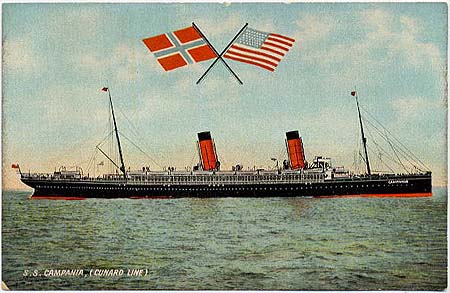
The 1909 Gold Coin Shortage
The 1909 Gold Coin Shortage
The 1909 Gold Coin ShortageWith the possible exception of the three divergent U. S. Customs reports relating to the composition of exports in the January 16th export report [This is the only time that we have found a discrepancy in reports emanating from the U. S. Customs Service, a division of the Treasury Department.], our discussion of the January 16th report, related engagements and market procedures provides ample evidence to indicate that the January 12th - $3,000,000 American Gold Eagle engagement was not shipped aboard the OCEANIC, but remained to be shipped after the OCEANIC departed. A definitive resolution as to the actual composition of the January 8th, January 11th, and January 12th engagements, which constitute the January 16th export report, can be determined by a comparison of the individual export reports with the actual composition of gold imports received by France. One of the several reports of export composition is the U. S. Customs report which appeared in the Journal of Commerce, as follows: EXPORTS - The following is a detailed report of specie exported from the district of New York from January 11, 1909, to January 16, 1909, inclusive:>
Journal of Commerce, January 18, 09, 2:3 We have contended that:
Therefore, two parameters must be satisfied for our contention to be accurate; the total of gold bars shipped from the port of New York for the month of January, 1909, and imported by France, should be $2,420,000 AND the coin portion of the January 8th engagement, $1,500,000, should NOT be indicated in the French import information. This would leave the January 12th - $3,000,000 American Gold Eagle - engagement in New York after the departure of the OCEANIC. The December 22nd, 1908 Engagement. Another engagement that must be taken into consideration in order to clarify France's January, 1909, import statistics is the engagement of December 22, 1908. GOLD EXPORTS Goldman, Sachs & Co. Engage $500,000 Gold Bars - Goldman, Sachs & Co. on Monday [Dec. 21] engaged $500,000 gold bars for export to Europe. It was announced that it would not be determined until to-day what country the gold was destined for, although it very probably would be shipped to Paris. This engagement of gold bars represents the accumulation of daily receipts at the Assay Office during the past ten days, or since the National City Bank took all the suitable gold bars there were when it shipped $4,000,000 on Dec. 12. The Assay Office is thus again without any exportable bars. The total gold engagements since Dec. 3, when Lazard Freres shipped $1,500,000, have been $6,000,000. Wall Street Journal, Dec. 22, 08, 8:2
Goldman, Sachs & Co. yesterday announced an engagement of $500,000 gold in bars for export to either Paris or Berlin, the destination to be determined to-day. It is possible also, that the amount will be increased if more gold bars are obtainable. This engagement of gold bars again exhausts the supply at the assay office and further exports will have to be made in gold coin. The gold will be shipped on the CAMPANIA[?],1 sailing tomorrow. New York Commercial, December 22, 08,1:6 Sterling yesterday forenoon advanced in the highest point in the season. Demand sold at 4.8720, and this led to the engagement of $500,000 gold by tomorrow's steamer. When stocks broke violently Europeans became purchasers on a large scale, and this helped to cause the break in exchange to the basis of 4.87 for demand. It is believed, however, that gold may be shipped by other interests who are supposed to have gone short of the market. ... Yesterday's engagement absorbs the Assay Office's stock of bars. ... Journal of Commerce, December 22, 08, 2:6 |
||||||||||
FOOTNOTES1Other newspaper articles, cited next in this Report, indicate that this engagement was shipped aboard the White Star Liner TEUTONIC. CAMPANIA's route was New York to Liverpool via Queenstown and did not include a French port. TEUTONIC's route was New York to Plymouth, Cherbourg, Southampton. |
||||||||||

